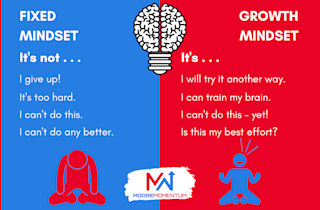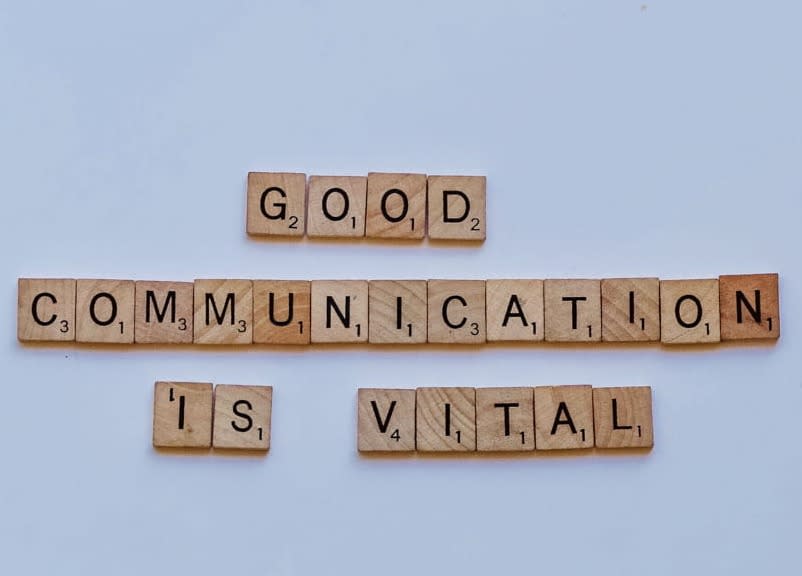
Communication in Remote Work - How to Collaborate Effectively
Jun 9, 2023
By Will Moore
Some days, you wake up in the morning and seriously consider calling in sick. You trudge into work, give a weak smile to your coworkers, and slump into your desk, hoping no one will talk to you.
On other days, you walk in smiling, join in on conversations, and treat your coworkers like your best friends.
Whether you enjoy their company or not, your office coworkers are a huge part of your life. In fact, if you really think about it, you probably spend more time with your coworkers than anyone else. Your relationship with them is one of your most important because you see them so often.
Some people focus on those relationships as more than just work, going out for lunch with coworkers on the weekend, or hosting cookouts for the Fourth of July. Others stick to strictly professional environments.
Either way, your coworkers are your teammates, people you create ideas or even argue perspectives with. In most jobs, you rely on them at least a little bit. You’re all working together to create the same result.
The time you spend with your coworkers has a huge impact on your mental health, whether those interactions are positive or negative. Positive interactions with colleagues are so important because when you feel heard and your perspective and ideas are seen and taken seriously, you feel more confident and validated, boosting your mindset core.
The Plot Twist: What Happens to Your Relationship With Your Coworkers Now?
Post COVID a lot of things have changed. We've switched to working online and communicating remotely. Team Meetings happen over Zoom, coworkers are talked to through a camera, and interruption from a family member is bound to happen. We have to maintain relationships with our coworkers through a computer screen.
And it doesn’t look like remote work and communication will disappear anytime soon. Experts say it’s going to last. The flexibility and ease appeal to many companies, who will find a way to incorporate them into the workplace, even during the pandemic.
You may as well get used to it, folks. Remote work and asynchronous communication are going to stick around.
And even though we don’t see them in person anymore, communication while remotely working with teams and our coworkers is crucial. We can’t let those relationships fizzle out. Communication is key; sticking together and working towards the same goal can only be done if everyone is on the same page.
What is Remote Communication?
Remote communication is a method of collaboration that allows team members to work together even when they're not in the same physical location.

There are a number of different tools that can be used for remote communication, including video conferencing, instant messaging, and project management tools.
For remote teams' communication to be effective, it's important to choose the right tools and establish clear guidelines for how team members should communicate with each other.
Why is Communication in Remote Work Important?
There are several reasons why communication in remote work is important. First, it allows team members to work together even when they're not in the same location. This can be helpful for companies with remote employees working in different time zones or who need to travel frequently.
Second, remote communication can help to reduce the costs of doing business. If team members can communicate and collaborate effectively without traveling to meet in person, it can save the company money on travel expenses.
Finally, remote communication can help to improve the quality of work. When team members can communicate and collaborate effectively, they can produce better results.
7 Key Elements Of Remote Communication
Remote communication has become increasingly important in today's digital age, particularly with the rise of remote work and virtual collaboration.
Here are seven key elements to keep in mind to effectively communicate remotely:
Clarity
Clarity in communication is crucial, especially in a remote setup where there are no physical cues or immediate feedback.
Key Tips
Be concise: Keep your messages clear and to the point. This avoids confusion and ensures your message is understood.
Use simple language: Don't overcomplicate things. Use simple language that everyone can understand.
Clarify intentions: Misunderstandings can happen. If you're not sure, ask for clarification and confirm your understanding.
Tone
The tone of your communication can greatly influence how your message is received.
Key Tips
Stay positive: A positive tone encourages open communication and fosters a more engaging environment.
Avoid being too formal: While professionalism is important, a friendly tone helps in building a more personal connection.
Use emoticons wisely: Emoticons can help convey your tone in text-based communication, but use them appropriately.
Active Listening
Active listening is a critical part of effective communication, showing respect and understanding for the speaker.
Key Tips
Show interest: Ask follow-up questions and provide feedback to show that you are engaged and interested.
Summarize and confirm understanding: After a discussion, summarize key points and confirm your understanding.
Avoid multitasking: When on phone calls or in meetings, give your full attention to the speaker.
Empathy
Empathy is the ability to understand and share the feelings of others. It's even more important in a remote setting where we lack physical cues.
Key Tips
Show understanding: Acknowledge the other person's perspective and feelings, even if you don't agree.
Offer support: Let others know you're there for them, especially during challenging times.
Remember personal details: Small details can show that you care about your colleagues as individuals.
Patience
Patience is a virtue, especially in a remote work setting where responses may not be immediate.
Key Tips
Allow response time: Understand that instant responses may not be possible due to different time zones or work schedules.
Be tolerant of mistakes: Everyone is human and mistakes can happen. Don't rush to judgment.
Practice mindfulness: If you feel your patience waning, take a break and practice mindfulness techniques to refocus.
Respect
Respect is fundamental in any form of communication, but it's especially important in remote communication.
Key Tips
Acknowledge different perspectives: Understand that everyone has unique views and experiences.
Respect privacy: Just because someone is working from home doesn't mean they are available 24/7. Respect their work-life balance.
Stay open-minded: Be willing to listen and consider other viewpoints, even if they differ from your own.
Technology
Effective use of technology can help bridge the gap in digital communication and make interactions seamless.
Key Tips
Choose the right tools: Use reliable communication tools that everyone is comfortable with.
Ensure a stable internet connection: Nothing breaks communication faster than a spotty internet connection.
Respect digital etiquette: Don't spam, avoid typing in ALL CAPS, reply promptly, and respect others' digital space.
Learn to use technology effectively: Take time to learn the features of different tools and how to use them efficiently.
Stay secure: Keep your software updated, use secure networks, and be mindful of phishing attempts.
Remember, effective remote communication is about more than just exchanging information. It's about understanding the emotions and intentions behind the information. In video meetings, body language is also important. It's about connecting and making an effort to understand and be understood.
5 Tips for Successful Communication When Working Remotely
Connecting online might feel daunting, but I’ve got you covered. Here at Moore Momentum, we’re experts at communication and working remotely; we’ve always been virtual, even before the pandemic. Here are 5 tips for successful communication when working remotely:

1. Written or verbal communication is the only communication.
You can’t rely on nonverbal cues or read your co-remote workers’ moods and thoughts because you’re no longer in the same space together.
You have to be clear with your communication and make sure it’s understandable and polite. Make sure you include all the details needed; vague messages can get pretty frustrating.
2. Communicate frequently.
Being a great remote worker doesn't necessarily mean completing tasks faster than everyone else; it means always acknowledging messages, sending updates, and providing reports.
If you’re running late, you should definitely send a quick, “I’m running late but will have it done by x afternoon.”
If someone says, “Make sure you title it x,” acknowledge their message with a thumbs up so they know you got it and you’re following.
3. Keep your communication kind and polite, just as you would in person.
Simply saying, “Hey, how are you?” before you get into the work can make things easier and more open.
4. Use the online tools available.
Platforms such as Zoom, Google Meet, and Cisco Webex are extremely helpful for remote meetings when you need to stay connected. Live conversations can be so much more helpful and easier than chatting over online messaging.
5. Remember to stay conscious of time.
That 20-minute Zoom meeting doesn’t need to drag into 2 hours. Time is extremely valuable when juggling kids, work, and home life all at the same time.
And most importantly, keep being your best self. The world still needs your positive energy, and you can let it out from the comfort of your own home.
